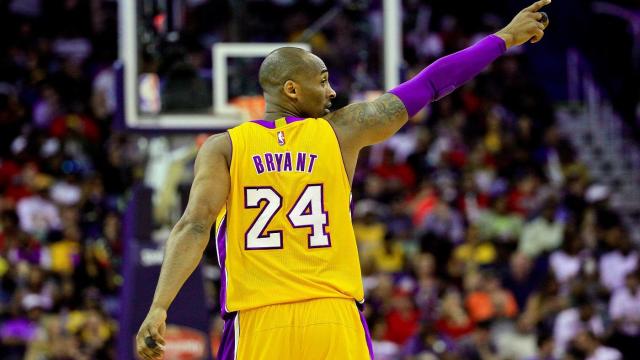The Veneration of Kobe Bryant

The attempt of the Kobe-Industrial Complex to erase his extremely credible sexual assault accusations upon his death is really revolting. The entire basketball world–players, fans, men, and women–have acted as a gigantic rallying cry for the greatness of this admittedly outstanding, albeit overrated, player. And look, Bryant wasn’t always awful. He was a huge supporter of women’s basketball, including my Oregon Ducks, and that’s also a huge part of his life story. No one is saying to erase that either.
But the attempted and often aggressive erasure of Kobe’s sexual assault–which was much more egregious for example than that of Brett Kavanaugh–is horrifying. Between Washington Post reporters nearly getting fired for tweeting known facts and titans of women’s basketball such as Lisa Leslie chastising female reporters for asking about what should be a major concern for all of us, it is again obvious that if anything, misogyny is more deeply embedded in our society than racism.
Amira Rose Davis had a piece on this last week in The New Republic and since this story isn’t going away thanks to the Kobe-Industrial Complex ensuring that 2020 is going to be the Year of Kobe Memory throughout sports, it’s worth linking to.
And in what felt like a parallel conversation, there was a remembrance of Bryant as he existed for so many others: another man who hurt a woman and moved on, untouched. They remembered the 19-year-old woman who said that Bryant blocked her from leaving a hotel room in 2003, groped and choked her, then raped her. They recalled the subsequent trial and coverage, how his accuser’s name was leaked to the press while her sexual history and mental health were dissected.
Quickly though, these stories began to collide. As the posthumous hagiography machine began to whirl, there were familiar conversations about respect, legacies, mythmaking, and the “right time” to bring up sexual assault. Obituaries hinted at a “complicated” legacy or made oblique references to “Colorado.” There were mentions of the rape case, maybe, in a quick and tidy paragraph. Anything more would have made the narrative incoherent. Uncomfortable. Distasteful.
The story of Bryant’s life had been written over the course of decades, largely along the same parallel lines. As with so many other powerful men, it was rare to see these two things—beloved men and the harm they’ve done—held in tension for very long. So this ended up being a story about Kobe Bryant and a story about us. How we compartmentalize the people we love or admire. How we don’t know how to talk about sexual violence, and cling to myths about “monsters” and “good guys.” How victims so quickly fade from public view, while the men who victimized them rise in status. We can hardly talk about the strange pain of knowing someone in these ways—a loving father, a supernaturally talented athlete, and an alleged rapist—in life. Why should it be different in death?
…
Black Mamba—as a name, as a symbol, as a mentality—was created by Bryant as a direct response to the sexual assault case. It spoke to his ferocity on the court. To his refusal to be “passive” any longer. He also hoped it would serve to “separate the personal stuff” still attached to the name Kobe Bryant. “The whole process for me was trying to figure out how to cope with this,” Bryant told The Washington Post in 2018. “I wasn’t going to be passive and let this thing just swallow me up.”
But as his public redemption narrative picked up steam and his sponsors reappeared, Black Mamba on the court morphed into the deracialized Mamba brand off the court. There were Mamba Shoes, the Mamba Foundation, a partnership with Nike to launch the Mamba League. And then, of course, there was the Mamba Sports Academy, which featured the Mamba team that Bryant coached with Christine Mauser. The team that Gigi Bryant, Alyssa Altobelli, and Peyton Chester played on. The game they were headed to last Sunday when the helicopter went down.
This kind of willful blindness is true across industries but may speak to a way in which sports are covered in particular and the fan culture around players and teams.
Winning seems to absolve many things. So does money. When the soccer club Juventus responded to the news that superstar Cristiano Ronaldo had settled with a woman in a sexual assault allegation years earlier, it tweeted that Ronaldo had shown “great professionalism and dedication” and was a “great champion,” before showing a clip of him scoring a goal and celebrating. In 2015, five years after Steelers quarterback Ben Roethlisberger was accused of two different incidents of sexual assault, a reporter wondered if “the statute of limitations on hating the two-time Super Bowl champion have expired,” noting that “everyone involved has moved on from it” and adding later that Roethlisberger has since become a “family man.” But all of that was almost beside the point: “More than anything,” the piece concluded, “he must continue succeeding, continue pushing forward, and continue delivering success to a Steelers roster that desperately needs him.”
My position about using experiences of death as a chance to talk about a person’s legacy honestly is well-established and just because we like Kobe (well, you might, I hated the guy and the Lakers forever) doesn’t mean that we don’t look just as honestly at his history of sexual violence as we will when Brett Kavanaugh and Ben Roethlisberger die. We absolutely much. Creating heroes is always a net negative for society; when they cover up sexual violence it is even more the case.


